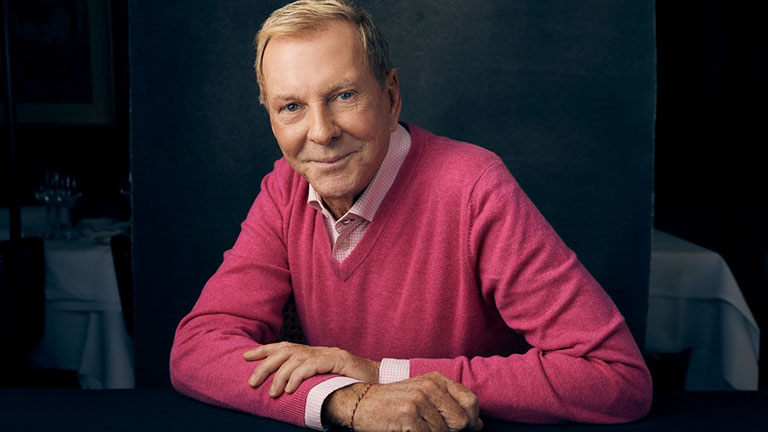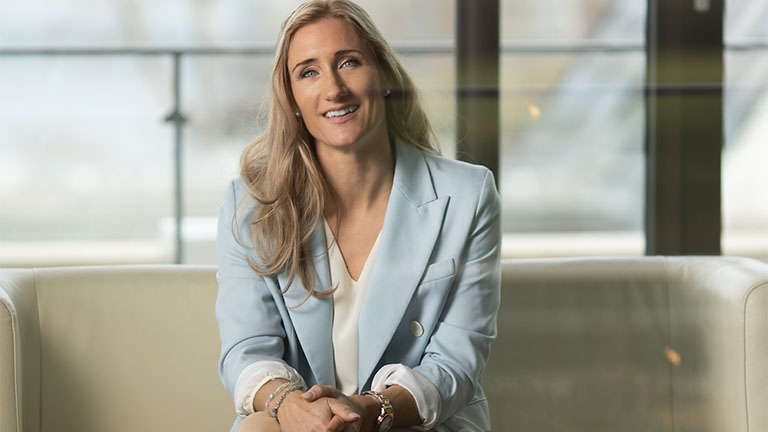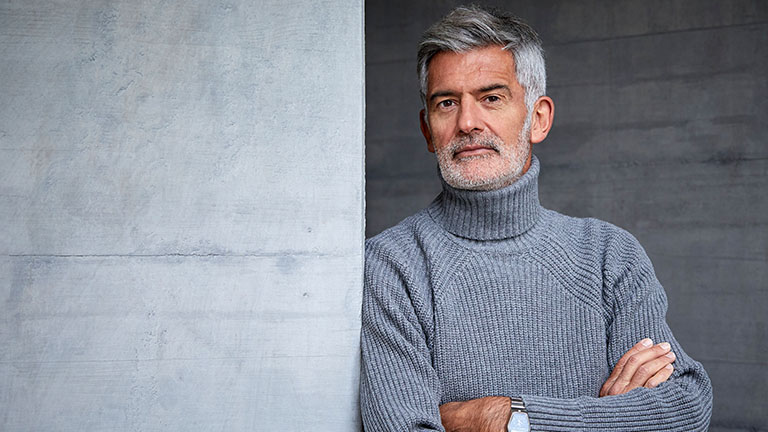You are here:
Sustainable living and working: here’s what these three Swiss personalities have to say
What does sustainable living and working mean for you? We asked Kurt Aeschbacher, Tanja Frieden, and Alfredo Häberli.
What does living sustainably mean for you personally: in which areas do you set a good example, and where do you feel you need to improve?
For me, sustainable living means practising what you preach. In my everyday life that means: not eating too much meat, and on the occasions I do, sourcing it from a farmer I know personally, who slaughters his animals on the farm – and definitely none of that awful cheap stuff. It also means eating “leftovers” from time to time. What else does it mean? Travelling by public transport wherever possible, not buying cheap clothes that’ll be in the bin in a month anyway, and asking, each time I purchase something, where the product actually comes from and if it’s really going to bring me joy. My one guilty pleasure is the car, which mostly sits in the garage. It’s a normal petrol engine, but I want to swap it for a more environmentally friendly model in the near future.
You became involved in a “sustainable” start-up in 2019. What motivated you to get involved with KURTS and in what ways is KURTS sustainable?
KURTS is a young company that has consistently committed itself to sustainability: when you shop with KURTS, you’re supporting the makers of small Swiss enterprises who produce items under fair conditions and put their heart and soul into quality and craftsmanship. A social enterprise takes care of packing all the items, which are then shipped carbon-neutrally. It’s always paper sticking tape and wherever possible repurposed packing material. I was really won over by this clear and uncompromising attitude, not to mention the enthusiasm of the founders and the beautiful products in the KURTS range. And then of course, KURTS does also happen to bear my first name...
What’s your biggest concern when it comes to sustainability?
The fact that the term is bandied about excessively and is often used as a fig leaf. “Sustainability means a certain degree of individual sacrifice.” And this can only be achieved through consistent action and not through hot air. This applies to companies, too, by the way.
Tanja Frieden, coach and snowboard cross Olympic champion 2006
What does sustainable living mean for you personally: in which areas do you set a good example, and where do you feel you need to improve?
“To me, living sustainably means living in a way that brings me and others long-term benefits and makes me and others happy.” It’s especially important to me that I make the best use of resources – a specific example of this has been converting our building. I have made sure we rely on renewable energies and wherever possible on materials that can be recycled. But I see many areas where optimisation is needed. Goodness knows, I’m no authority on sustainability, and I sometimes lapse myself. So, I travel by car quite often and still haven’t given up flying, though I’m trying to cut down here as well. I also see potential in the area of nutrition. Here, some of the central questions are “What do I eat?”, “What else do I eat?”, and “Where do I source my food?” My meat consumption has gone down considerably in recent years. I only eat selected meat now, but I’m also thinking about how I can replace meat so it also makes sense in terms of sustainability.
Where does the issue of sustainability concern you most?
In our human thinking, which also shapes our behaviour. At my “Frieden Academy”, as a coach I support clients who want to achieve their most sought-after goals – and sustainability is at the very heart of that. My work entails consciously questioning our own behaviour and, by extension, the way we use our own internal resources. Central to that are questions such as: “Do I just function as a cog in society and do what’s expected of me? Or am I prepared to be receptive and follow my inner voice – which quite clearly knows better about right or wrong and will show me the best path in the long run?” After all, I can only make a contribution to something bigger than myself if I am awake to this contribution.
Why do you think it is important for people to define for themselves what a sustainable life looks like for them?
Instead of always setting benchmarks for your own goals higher, further, faster, you should reflect on what makes sense to you, who you are in life, and what you want. This very often gives rise to counterintuitive life goals, which you personally feel to be meaningful, but which do not necessarily conform to society. In my own life I have only ever pursued this sort of counterintuitive goal, but with success. For me this is a very sustainable way of living.
To what extent is sustainability important to you as President of the Snow Sports Initiative?
By opening up children’s access to our world of mountains, we nourish awareness of this wonderful habitat in a sustainable way.
Alfredo Häberli, designer
How do you integrate sustainability into your work?
In terms of sustainability, ever since founding my design studio in 1991, the goal was and is to design products that last. I do not follow fads or fashion trends – I look for individuality in the products. It is no accident that many products have been in production for 15 to 20 years – since they were first designed. What’s more, there’s an overarching motif that guides me: to achieve as much as possible with as little material as possible. I call this “the economy of means”.
Sustainability and design: How do these go together?
It’s precisely this kind of apparent contrast that fits together perfectly – so long as design is not considered to be styling.
Which products that you have designed yourself are your favourites in terms of sustainability?
Those that are made from a single material and have been in production for what feels like an eternity. So for example, the Essence drinking glass collection for the Finnish company Iittala, which has been produced since 2001.
And which of your designs makes you particularly proud in terms of sustainability?
Five years ago, I was able to realize a project I have always dreamed of: an ensemble of system-house buildings that meet the highest standards in terms of building biology and building ecology, and are not only sustainable, but also self-sufficient and degradable.



